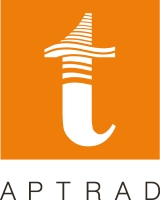
CARME MANGIRON
LECTURE: GAME ACCESSIBILITY AND LOCALISATION: BRINGING ENTERTAINMENT TO THE NEXT LEVEL
BIO
Carme Mangiron is a lecturer and a member of the research group TransMedia Catalonia at the Universitat Autònoma de Barcelona (UAB). She holds an undergraduate degree in Translation and Interpreting by UAB, an MA in Anglo-Irish Literature and Drama by University College Dublin and a doctorate by UAB. She is the Director of the MA in Audiovisual Translation at UAB and has taught game localization at several universities in Spain. She has wide experience as a translator, specializing in software and game localization. Her research interests include game localization, game accessibility, audiovisual translation and accessibility to the media. She has presented papers at several national and international conferences, published in high-impact international journals and participated in several funded teaching and research projects. Carme is one of the principal investigators of the Researching Audio Description: Translation, Delivery and New Scenarios (RAD), funded by the Spanish Government (2019-2021). She is co-author of Game Localization: Translating for the Global Digital Entertainment Industry (O’Hagan and Mangiron, 2013), the first academic monograph on game localization, one of the editors of Fun for All: Translation and Accessibility Practices in Video Games (Mangiron, Orero & O'Hagan, 2014) and the main organizer of the Fun for All: Translation and Accessibility in Video Games Conference, which started in 2010 and runs every two years.
ABSTRACT
Once regarded as a child's pastime, video games have grown to become one of the main entertainment options in the digital society. Not only can they provide endless hours of fun, but they are also being increasingly used for other purposes, such as education and health. The cost of developing a mainstream game is high, so in order to maximise their return-on-investment game companies strive to sell their products to the widest possible audience. Game accessibility and localisation are crucial to fulfil this goal. However, while game localisation has become a standard practice in the gaming industry, game accessibility is still a pending issue, despite the fact that 15% of the world population has some type of disability (WHO, 2020). This paper will provide an overview of current game accessibility and localisation practices. First, the concept of game accessibility and the main barriers different types of users face will be presented. Secondly, the latest advances in game accessibility will be presented, both from an industry and an academic perspective, focusing on sensorial accessibility. Special attention to the Researching Audio Description project (PGC2018-096566-B-I00, MCIU/AEI/FEDER, UE), which focuses on the potential application of audio description to games. Next, the concept of game localisation will be introduced, describing the main features and priorities of this emerging type of translation. The latest trends in the industry will also be presented, such as existing localisation models and the use of tools and technology. The paper will conclude outlining some of the future perspectives in these exciting fields, which will undoubtedly contribute to bringing entertainment to the next level.
WHO (2020). Disability. https://www.who.int/health-topics/disability#tab=tab_1
